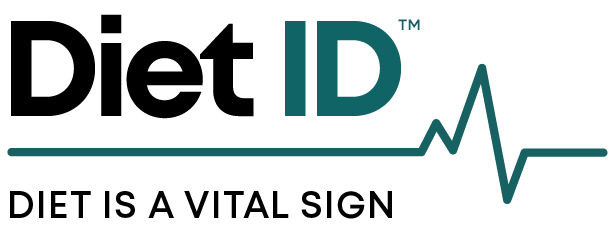Quantifying the Environmental Impact of Diet: the DIEM Project at Diet ID
What is it?
DIEM is an index to measure the environmental impacts of different dietary patterns. It stands for Dietary Impacts on Environmental Measures.
What is the mission?
Project DIEM’s mission is to understand the environmental impact of dietary patterns, and eventually help guide individuals in taking bite-sized, progressive steps toward reducing their impact while improving their health.
What are we doing first?
Diet ID is engaging world-leading experts (learn about our experts below) in the environmental impacts of foods to create an objective, summative measure of dietary impacts on environmental measures -- the 'DIEM' metric.
Leveraging its unique-in-the-world intellectual property associated with dietary pattern analysis, Diet ID will then translate that metric into a scale that can display net change in environmental impact with a change from one dietary intake pattern to any other.
Who will have access to this metric?
The DIEM metric will live in the public domain, available for use and will be used by both private and public organizations to advance Project DIEM’s mission.
How will Diet ID use this metric?
Once the DIEM metric is established, we will implement it into the Diet ID user experience to guide quantitative reductions in the environmental footprint of dietary intake pattern with transition from baseline diet to any given goal diet.
This information will help users maximize the net reduction in the environmental footprint of their dietary pattern and help users align a reduction in the environmental footprint of their diet with their personal health goals, and native dietary preferences.
Why is it important?
What and how we eat have vast personal health AND planetary health implications.
We know that the food that is healthiest for individuals is also healthiest for the planet. However, putting that theory into practice requires understanding -- about what you eat and how it affects the world around you. And the time is now -- climate change is already approaching irreversible levels.
One of the most impactful and achievable actions you can take every day to combat climate change is to modify your food choices. But knowing what and how to do it is not always clear. Diet ID strives to help individuals understand the planetary as well as personal health impact of their food choices, as well as the changes they can make to reduce that impact of their diets -- no matter what preferences they may have.
If you are interested in contributing to this work in any way, please reach out to our team at info@dietid.com.
Consulting Experts
Gidon Eshel
Gidon Eshel is a research professor of environmental physics at Bard College, a 2017 Radcliffe Fellow at the Harvard Radcliffe Institute for Advanced Studies, and an Adjunct Senior Scientist at Columbia's Lamont Doherty Earth Observatory and Harvard's Department of Earth & Planetary Sciences. His work in recent years focuses on quantifying multi-dimensional geophysical consequences of agriculture, aquaculture, and diet, addressing contributions to climate change, water pollution and consumptive use, occupation of high quality cropland as well as grazing rangeland, biodiversity and species extinction, among others.
A recent novel thrust is mathematical-numerical modeling of regenerative agriculture, and the roles this agricultural model may play in future, more sustainable alternative food systems. Another new direction Eshel is now vigorously pursuing addresses thermodynamic efficiency of various livestock, taking a systems biology-motivated allometric approach.
Martin Heller
Marty Heller is a sustainability consultant working with the Netherlands-based firm, Blonk Consultants. Previously, he spent 15 years as a senior research specialist with the Center for Sustainable Systems (CSS) at University of Michigan. His research applies systems approaches and life cycle assessment methods to evaluate the environmental impact of food, food systems and dietary choices. Recent work linked food environmental impacts and individual, self-selected diets in the US. Martin was awarded the 2018 Best Article Award in the journal, Environmental Research Letters and the 2015 Senior Author Best Paper in Journal of Industrial Ecology. He received a BS in chemical engineering from Michigan State and a PhD, also in chemical engineering, at the University of Colorado at Boulder. Marty also spent more than a decade starting and managing direct-market organic vegetable farms in the Ann Arbor and Traverse City areas.
For Further Reading
Clark MA, Springmann M, Hill J, Tilman D. Multiple health and environmental impacts of foods. Proceedings of the National Academy of Sciences 2019;116:23357-23362. https://doi.org/10.1073/pnas.1906908116
Stylianou, K.S., Fulgoni, V.L. & Jolliet, O. Small targeted dietary changes can yield substantial gains for human health and the environment. Nat Food 2, 616–627 (2021). https://doi.org/10.1038/s43016-021-00343-4
Katz DL, Doughty KN, Geagan K, Jenkins DA, Gardner CD. Perspective: The Public Health Case for Modernizing the Definition of Protein Quality. Adv Nutr. 2019 Sep 1;10(5):755-764. doi: 10.1093/advances/nmz023. PMID: 31066877; PMCID: PMC6743844.
https://www.wri.org/insights/how-sustainably-feed-10-billion-people-2050-21-charts





